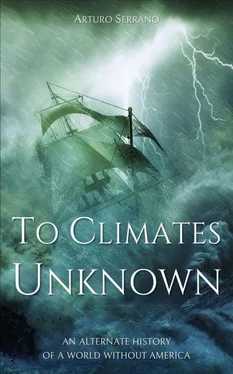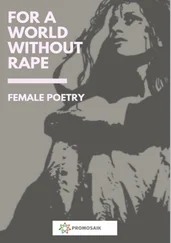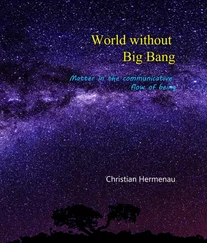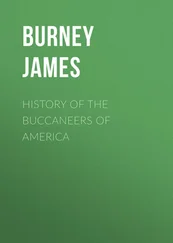“No. But that shouldn’t matter. I’ve been trying to not let it affect the pace of our work, but everyone in the school is talking about it.”
“What are they saying?”
“Someone convinced the governor that he’d be more profitable elsewhere. I believe he was auctioned this morning.”
“Do you know where they took him?”
“One of my kids heard he’s bound for Peru. Sent to the mines, most likely.”
Paulo said nothing more. There never was anything that could be said.
“He’s just nineteen,” she continued. “If I had known his family, he could’ve been at my school, at least for a couple of years. He could be doing what the rest are doing; he could have turned to chemistry, or algebra, or—”
“That would’ve given him no guarantee against conscription.”
She looked at her husband as if he’d hit her. “Are you saying you don’t believe I’m guarding those children against slavery?”
“What you’re doing matters, but—”
“It was you who showed me the royal decree that ordered a preference for the ‘uncultivated!’ Don’t try to tell me I’m making no difference!”
“As long as you have to work in secret, the difference won’t be visible.”
She stood up, unable to handle more arguing. “It may not be so now. But our freedom has to start somewhere.” Without waiting for a reply, she went upstairs and headed for the main bedroom, past Neema’s door, behind which the candle was out, but a light of another nature was being kindled.
Morning, August 14 (Gregorian), 1938
Likasi
The Church didn’t have resources of its own to monitor everyone’s piety, but families who exerted influence on the community lived under dedicated supervision. While Rukkamma’s activities were kept strictly secret, Paulo’s prominence as an advocate for local land rights made him worthy of interest. Naturally, they were expected at Sunday Mass. Also naturally, Rukkamma had taken pains to instill in her daughter the Hindu ideals of the multiplicity of paths and the universality of the divine. She was sure that the professor wouldn’t have objected to her compromising approach. For her there was nothing to reject in the Catholic mode of worship, but she drew a line between the door to her house and any claim to unchangeable truth.
Every Sunday, once Mass was over, Neema had questions for her mother about matters of religion, which she was careful to always ask in Kannada during the walk back home. Rukkamma did her best to harmonize her parents’ open faith with the empire’s closed one, but sometimes she worried that her answers weren’t sufficiently clear. Since Paulo only had a basic grasp of Kannada, he was unable to assist in those discussions. But even he noticed that this time Neema was uncharacteristically quiet.
“What’s on your mind, little one?”
She looked up at him as they exited the church and asked, in a tone that betrayed how intensely she’d been thinking about the topic, “Has Germany ever owned Zaire?”
He found the question so strange that he took long to formulate an answer. “No. But Germany isn’t a single nation; it’s rather a convenient name for a group of territories that used to have each their own prince and today belong to the king of Denmark. There have been Canutic incursions in parts of Zaire, but they can’t be called German.”
Neema considered his words and asked, “Has Zaire ever owned Germany?”
Paulo laughed, but quickly looked around for government agents. He bent and brought his face close to her ear. “I pray I live to see that day.”
Rukkamma was curious about that line of questioning. “Why do you ask?”
“The book about German rocks has one I’ve seen here. I never thought we could have the same rocks.”
“That’s fascinating,” said Paulo. “Will you show us where you saw this rock?”
“It was when I went to the Franciscan school.”
“That was years ago,” he said. “I’m surprised you even remember that time.”
“It was a strange rock. It was very black, but also very shiny, and I looked at it and didn’t understand how it could be both things.”
Paulo asked Rukkamma, “Do you remember where that school is?”
She shook her head. “Somewhere near the copper mines. The friars wanted to work with the same kids as I.”
“It was near the mines!” screamed Neema. “Yes, Antónia and I were playing in the dirt, and she dug up this pretty shiny black rock, and I told her—”
“Slow down,” said Rukkamma. “Who is Antónia?”
“A girl at that school.”
“Is she at my school now?”
“No, I haven’t seen her there.”
“What happened to the rock?” asked Paulo.
“She kept it. Every time I went to play at her house, I asked her to let me see it, but she never let me touch it.”
“Was it valuable?” asked Rukkamma. “Was it like a diamond?”
“I said it was black.”
“Some diamonds are black.”
“No, this one was different. It had lots of flat surfaces on it and it was attached to a chunk of hardened dirt with little yellow dots all over it—”
“Neema,” interrupted her mother, “if you used to play at her house, we could pay her a visit and ask her to show us the rock, if she still has it. That way you’ll be able to compare it with your book and check whether your memory is correct.”
Neema smiled. “I can take you to her house.”
When they arrived it was almost noon, and they stopped by a coconut vendor to have a drink after the long walk. During that pause, Rukkamma finally recognized the place. It was the neighborhood where the Farnanas had lived as newlyweds, when they had merely a glimpse of their plans for the Zairean people. They had met in Boma, much closer to the coast, and had chosen to settle in Likasi precisely because it was remote and in woeful need. The only thing that had made those years less fearsome and less confusing than they should have felt had been old Sagunabai’s guidance. It was a constant regret of Rukkamma’s that the woman who had finished the job of raising her hadn’t lived to meet her daughter.
They approached the house Neema pointed at, and knocked on the door. They knocked again, several times, until a frail-looking lady opened with what looked like pained effort.
“Good day,” began Paulo. “My name is Paulo Farnana. This is my wife Rukkamma, and you may remember our daughter Neema. She used to be friends with Antónia when they went to the Franciscan school. I know this may sound odd, especially with us showing up suddenly like this, but today Neema was telling us about a pretty black rock they’d found one day, and we were wondering whether Antónia might still have it with her. Neema would very much like to say hello to her old friend.”
The woman stared at them for a while before saying in a weak voice, “This is Neema? By God, you have grown. My—” her words stopped abruptly, and she started sobbing.
“Have we upset you?” asked Rukkamma. “We’re sorry; we should be leaving.”
“No, please. Come in.”
The woman led them inside and they sat in a living room full of pictures made with Chinese silver paper.
“Look! That’s Antónia,” said Neema, pointing at the pictures.
“Those are old,” corrected Rukkamma. “By now she must be as tall as you are.” Immediately she wished she’d said nothing. She lowered her gaze, crushed by infinite shame. Her husband briefly met her gaze and understood, too. Neither of them knew when it would be appropriate to speak again.
The woman took one of the pictures and handed it to Neema. “You can have this one. It gives my heart a little warmth to see that there’s someone who will remember her after me.”
Читать дальше












